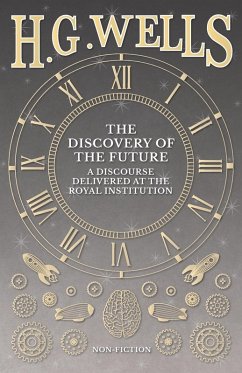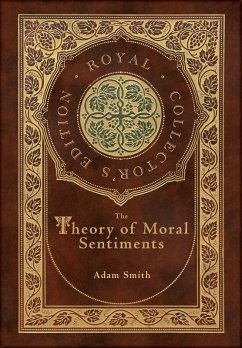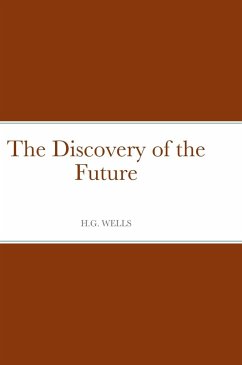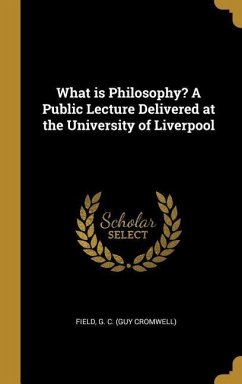
The Discovery of the Future - A Discourse Delivered at the Royal Institution

PAYBACK Punkte
7 °P sammeln!
"The Discovery of the Future" is a philosophical lecture by H. G. Wells first delivered to the Royal Institution on January 24, 1902. Within it, Wells explores the 'knowability' of the future and the question of what is to come after man. This fascinating and thought-provoking lecture constitutes a must-read for fans of Wells' work, and it would make for a worthy addition collections of allied literature. Herbert George Wells (1866 - 1946) was a prolific English writer who wrote in a variety of genres, including the novel, politics, history, and social commentary. Today, he is perhaps best rem...
"The Discovery of the Future" is a philosophical lecture by H. G. Wells first delivered to the Royal Institution on January 24, 1902. Within it, Wells explores the 'knowability' of the future and the question of what is to come after man. This fascinating and thought-provoking lecture constitutes a must-read for fans of Wells' work, and it would make for a worthy addition collections of allied literature. Herbert George Wells (1866 - 1946) was a prolific English writer who wrote in a variety of genres, including the novel, politics, history, and social commentary. Today, he is perhaps best remembered for his contributions to the science fiction genre thanks to such novels as "The Time Machine" (1895), "The Invisible Man" (1897), and "The War of the Worlds" (1898). Although never a winner, Wells was nominated for the Nobel Prize in Literature a total of four times. Many vintage books such as this are becoming increasingly scarce and expensive. We are republishing this book now in an affordable, modern, high-quality edition complete with a specially commissioned new biography of the author.













